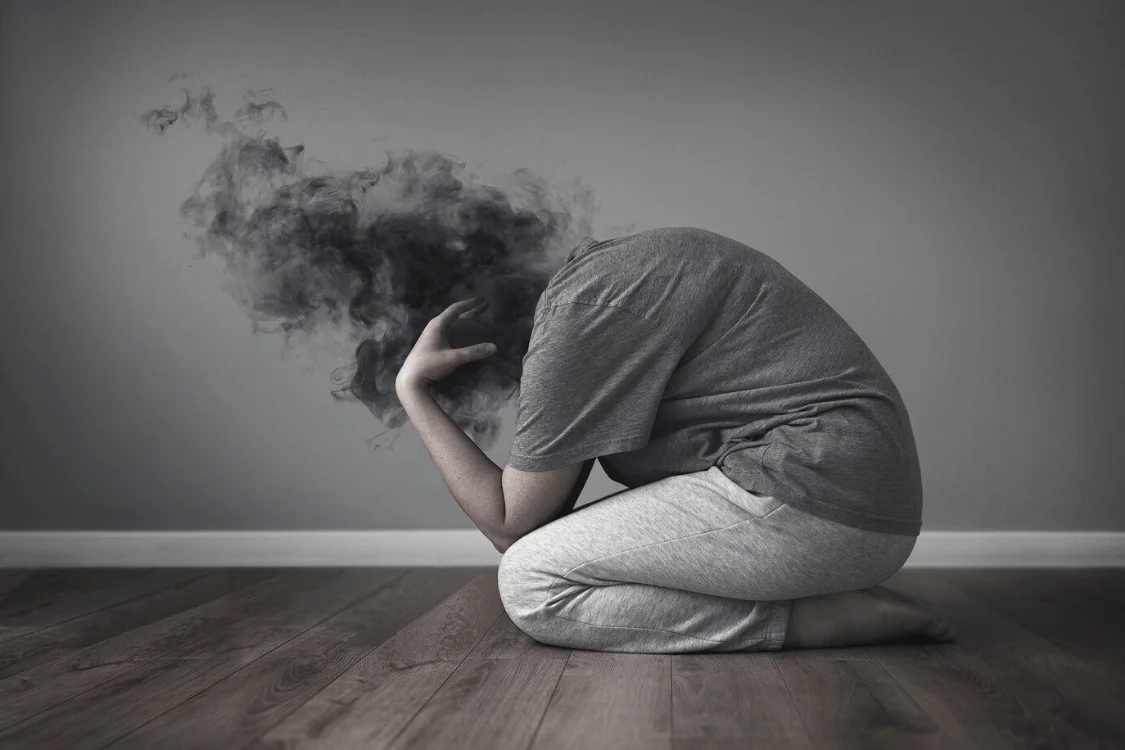
Gaming Addiction Treatment
Gaming addiction is a modern challenge that transcends simple hobby playing into a serious behavioral condition recognized by health professionals worldwide.
Characterized by a compulsive engagement with video games that impacts daily life and mental health, gaming addiction requires structured and specialized intervention. We address this pervasive issue with various effective treatment methodologies at Twilight Recovery Center.
Our programs help individuals regain control over their gaming habits, restore balance, and prevent the long-term consequences of compulsive gaming. From Cognitive Behavioral Therapy (CBT) to holistic treatment options, our approach is tailored to meet the unique needs of each suffering from gaming addiction.

What is Gaming Addiction?

Gaming addiction, recognized as ‘Internet Gaming Disorder,’ is a behavioral condition where individuals cannot control their gaming habits, leading to significant disruptions in personal, educational, work, and social areas of life. It is most prevalent among online gamers.
Though similar to other behavioral addictions like gambling, gaming addiction is distinct because it involves cognitive skills and quick reflexes, unlike the chance-based outcomes of gambling. It’s characterized by an obsessive engagement with gaming, often prioritizing it over all other life activities and interests.
Identified by the World Health Organization (WHO) as a legitimate mental health concern, gaming disorders can deteriorate one’s mental, social, and physical health. Professional intervention is crucial for those whose lives are dominated by gaming. Treatment centers like Twilight Recovery offer comprehensive support to manage this addiction and help individuals regain a balanced lifestyle.
How Common is Video Game Addiction?
Video game addiction is a growing concern globally, impacting an extensive demographic across various age groups. With over two billion gamers worldwide – projected to exceed three billion by 2023 – the reach of video gaming is vast. According to a 2021 study, diagnosed gaming disorder’s global prevalence is approximately 3.05%.
This translates to up to 4% of gamers exhibiting addictive behaviors that significantly affect their daily lives. The incidence of addiction varies widely, influenced by factors such as the individual’s lifestyle, the types of games played, and personal circumstances. This broad impact highlights the need for accessible treatment options and increased awareness to address this evolving challenge.
What Causes Gaming Addiction?
Gaming addiction arises from complex interactions between psychological, neurobiological, and environmental factors.
Brain Chemical Changes
Engaging in video games can trigger the release of dopamine, a neurotransmitter linked to the brain’s reward system. This release is similar to what occurs with other addictive behaviors, such as gambling or substance use, reinforcing the cycle of addiction. The continuous cycle of dopamine release with gaming victories or achievements encourages repeated play, strengthening the compulsive behavior over time.


Emotional Influences
Many individuals turn to video games as a coping mechanism for managing negative emotions or to escape from stress, anxiety, or depression. This escape can become habitual, leading to excessive gaming that feels out of control. Virtual successes and achievements in games can temporarily boost mood and self-esteem, making the pull of gaming even stronger.
Additionally, certain psychological traits or conditions, such as attention deficit hyperactivity disorder (ADHD) or aspects of personality that increase vulnerability to addictive behaviors, can heighten the risk of developing a gaming addiction.
Signs and Symptoms of Gaming Addiction
Gaming addiction is a serious behavioral disorder that manifests through a variety of signs and symptoms, deeply impacting one’s social and personal life. Here are the key indicators of gaming addiction:
Persistent preoccupation
Individuals with gaming addiction often exhibit a constant obsession with games, thinking about previous sessions or anticipating the next opportunity to play.
Withdrawal symptoms
Withdrawal can occur when gaming is not possible, marked by feelings of irritability, anxiety, or sadness.
Tolerance
The need to spend increasingly more time gaming to achieve the same level of satisfaction or excitement.
Loss of control
Repeated unsuccessful efforts to control, reduce, or stop gaming.
Loss of interest in other activities
Gaming addicts tend to lose interest in hobbies or activities they once enjoyed, sacrificing them for more game time.
Continued overuse despite negative consequences
Despite facing significant personal, social, or occupational issues due to gaming, individuals continue engaging in gaming activities.
Deception
Individuals may lie to family members or therapists about the extent of their gaming.

The recognition of these signs is crucial in diagnosing and treating gaming addiction. Effective interventions can help manage these symptoms and guide individuals towards a balanced and healthier lifestyle, reducing the risk of long-term negative impacts on mental and physical health, social relationships, and overall life fulfillment.
If you or someone you know is displaying these symptoms, seeking professional help can provide the necessary support to overcome being addicted to video games.
The Effects of Online Gaming Addiction
Online gaming addiction can profoundly impact various aspects of life, leading to a cascade of negative effects that extend beyond mere entertainment. Here’s how excessive preoccupation with gaming can affect individuals:
Social consequences
Individuals suffering from gaming addiction often experience increased social isolation. As gaming consumes more time, it replaces real-world interactions and activities, weakening social ties and loneliness.
Academic and occupational impact
Excessive gaming can significantly detract from academic or job performance. Gamers may neglect studies or work responsibilities, resulting in poor grades, decreased job performance, and potentially jeopardizing educational and career prospects.
Mental health issues
Addiction can exacerbate or lead to mental health problems such as depression and anxiety. The immersive nature of games can serve as a temporary escape from reality. Still, it often contributes to emotional distress and mood disorders when gaming becomes a coping mechanism for underlying issues.
Cognitive decline
There is evidence to suggest that addiction to gaming can impair cognitive functions. The intense focus on gaming can detract from cognitive development in other areas, particularly in young people whose brains are still developing.
Physical health problems
The sedentary lifestyle associated with prolonged gaming sessions can lead to physical health issues, including obesity, joint pain, and other posture-related problems. The lack of physical activity and poor diet often associated with long gaming hours can exacerbate these health issues.
Sleep disturbances
Gaming addiction often leads to irregular sleep patterns and insomnia. The stimulating effects of intense gaming can interfere with the natural sleep cycle, leading to significant sleep deprivation and the consequent negative effects on overall health.
Emotional disconnect
Over time, individuals may confuse the fleeting pleasure from gaming with true happiness, leading to dissatisfaction with life and emotional instability. This misalignment can deepen the reliance on gaming as an emotional crutch.

Understanding these effects is crucial for recognizing the seriousness of gaming addiction and the importance of seeking appropriate treatment. Addressing this addiction effectively requires comprehensive strategies that tackle both the behavior and its psychological impacts.
Diagnosing Video Game Addiction
Diagnosing video game addiction, while not recognized under Diagnostic and Statistical Manual of Mental Disorders or DSM-5, is acknowledged by the WHO as a gaming disorder. Mental health professionals may diagnose this based on criteria for addictive behaviors, focusing on the impact on the individual’s life rather than just the frequency of playing video games.
To confirm a diagnosis, a psychologist or psychiatrist evaluates the individual’s gaming habits, the extent of their gaming preoccupation, and its impact on personal, social, and occupational functioning. For internet gaming disorder, these patterns must typically persist for at least one year, significantly impairing daily activities and responsibilities. This process helps identify if gaming behavior is severe enough to be considered a disorder.
Gaming Addiction Treatment Programs
Gaming addiction, recognized as a serious issue affecting individuals of all ages, requires comprehensive treatment strategies. Here’s an overview of the multifaceted approach to treating video gaming addiction:

Cognitive Behavioral Therapy (CBT)
CBT is pivotal in helping individuals recognize and modify the dysfunctional thinking patterns and behaviors associated with their gaming addiction. By addressing these cognitive distortions, CBT aids patients in developing healthier responses to the triggers that lead to excessive gaming.

Inpatient Treatment Programs
These programs provide a structured and supportive environment essential for those who need to detox from gaming. Removing everyday distractions allows individuals to focus solely on recovery and learn new coping mechanisms in a controlled setting.

Group Therapy
Facilitating interaction with peers who face similar challenges, group therapy sessions are invaluable. They provide social support and enable sharing of recovery strategies and personal experiences, enhancing the therapeutic process and reducing feelings of isolation.

Medication-Assisted Treatment
While there are no medications specifically for gaming addiction, medications for co-occurring disorders such as depression or anxiety can be beneficial. These are used to treat underlying mental health issues that often coexist with or contribute to addiction.

Family Therapy
Involving family members in the treatment process is crucial. It helps repair and strengthen family relationships, improves communication, and addresses any systemic issues that may contribute to or exacerbate gaming addiction.

Holistic Approaches
Incorporating lifestyle changes and stress management techniques, holistic therapies like yoga, meditation, and physical exercise can greatly enhance recovery. These activities help reduce dependency on digital stimulation by promoting physical health and mental well-being.
Each of these treatment components plays a critical role in comprehensive care, aiming to address not just the symptoms but also the root causes of gaming addiction.
By utilizing these diverse therapeutic approaches, gaming addiction treatment programs can provide effective and lasting solutions, helping individuals regain control of their lives and achieve long-term recovery.
Helping Someone When Gaming Becomes an Addiction
Helping someone struggling with gaming addiction requires a compassionate approach that encourages seeking professional treatment. It is vital to foster a non-judgmental environment that supports recovery efforts. Here are practical steps to assist effectively:
- Encourage professional help: Gently suggest the benefits of professional counseling or therapy. Highlighting the success of specific treatments, such as CBT, can motivate them to seek expert assistance.
- Create a supportive environment: Offer emotional support and understanding. Avoid criticism that could increase guilt or shame, as these can exacerbate the compulsion to game.
- Regulate gaming access: Work together to set reasonable limits on gaming, such as agreed-upon hours or breaks. Involving them in decision-making helps them feel respected and more likely to comply.
- Monitor progress: Keep track of their progress and acknowledge improvements, reinforcing positive behavior changes.
By combining empathy with practical interventions, you can help guide your loved one toward overcoming their addiction and regaining a balanced lifestyle.

Get Help for Gaming Addiction at Our Treatment Center
At Twilight Recovery Center, we understand the complexities of gaming addiction. Our tailored treatment programs combine individual therapy, group sessions, and holistic approaches to ensure comprehensive recovery and long-term success. With our expert staff and serene environment, we provide the support needed to overcome addiction and regain a balanced lifestyle.
Contact us today to get treatment for video game addiction, substance addiction, and other mental health conditions associated with it.


